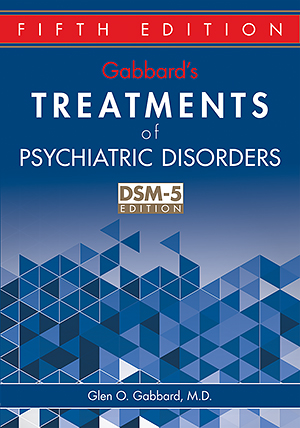Sections
Excerpt
Depersonalization is the subjective experience of detachment or estrangement from one’s own self. Derealization is the equivalent subjective experience as applied to one’s surroundings, animate or inanimate. Because the two experiences often, although not always, co-occur and because there is no empirical evidence to support their discrete nature, a single classification has been adopted in DSM-5 (American Psychiatric Association 2013): depersonalization/derealization disorder (DRD; see Box 25- for criteria). To merit the diagnosis, a person must be experiencing clinically significant depersonalization and/or derealization (i.e., persistent or recurrent and associated with distress and/or impairment) that is not exclusively due to another psychiatric or medical condition or to ongoing substance use, and reality testing regarding these experiences must be intact. All criteria leading a clinician to make the di-agnosis are important to appreciate and assess early on in encounters with new patients because the disorder is commonly misdiagnosed or underdiagnosed. With a prevalence of 1%–2% in several epidemiologic samples (Aderibigbe et al. 2001; Hunter et al. 2004) and significant associated morbidity, a delay in diagnosis and appropriate treatment leads to prolonged suffering (Simeon et al. 2009).
Access content
To read the fulltext, please use one of the options below to sign in or purchase access.- Personal login
- Institutional Login
- Sign in via OpenAthens
- Register for access
-
Please login/register if you wish to pair your device and check access availability.
Not a subscriber?
PsychiatryOnline subscription options offer access to the DSM-5 library, books, journals, CME, and patient resources. This all-in-one virtual library provides psychiatrists and mental health professionals with key resources for diagnosis, treatment, research, and professional development.
Need more help? PsychiatryOnline Customer Service may be reached by emailing [email protected] or by calling 800-368-5777 (in the U.S.) or 703-907-7322 (outside the U.S.).



